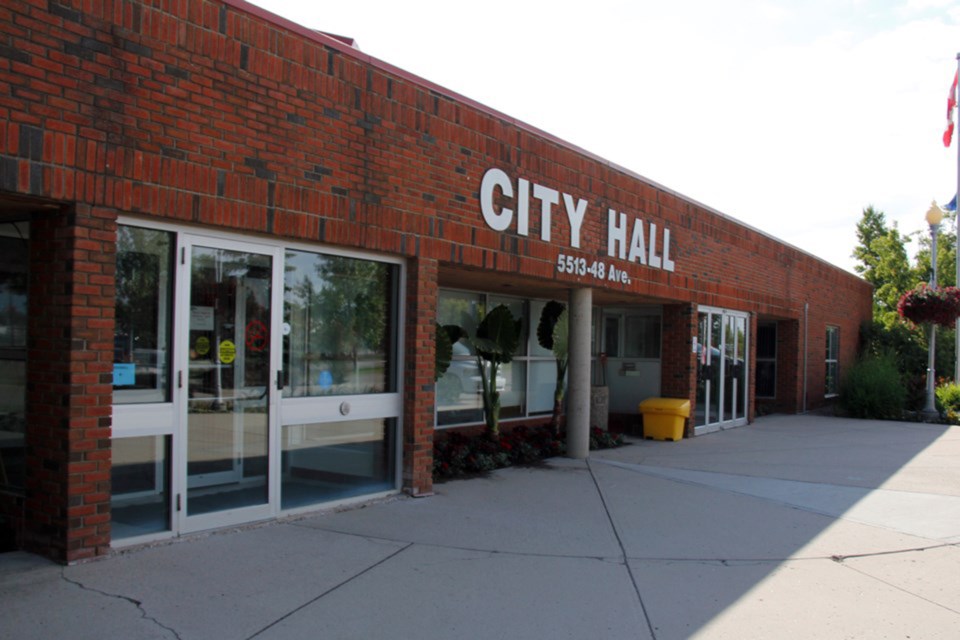COLD LAKE - In response to recent changes to the Alberta Advantage Immigration Program's Rural Renewal Stream, City of Cold Lake council has decided to defer sending a letter to MLA Scott Cyr until a meeting with provincial officials to provide further clarity on the implications of these modifications.
Council made the decision during the Oct. 22, regular council meeting, after discussing the top at a previous Oct. 15 Corporate Priorities Meeting, where concerns were raised about how the changes might impact local labor market dynamics and the application process for prospective immigrants.
City administration is seeking a comprehensive understanding of the new procedures before formally communicating with provincial representatives, ensuring that the City's advocacy reflects the needs and realities of its residents.
“As per the Corporate Priority Committee's direction . . . the administration has prepared a letter to our MLA about the recent changes to the renewal stream,” said Andrew Serba, the Strategic Initiatives Manager, during the Oct. 22 meeting.
However, he advised that administration recommended postponing sending the letter due to an upcoming meeting with provincial staff.
“Administration is requesting that we hold off on the letter for the time being. And that's because [on Oct. 23] we have a meeting booked with the provincial staff who run the program to go over the changes in greater detail so that we can fully understand their impact.”
The Rural Renewal Stream (RRS) provides eligible foreign workers with a pathway to immigrate to Cold Lake with formal backing from the City. Managed by the City’s economic development team through a provincially approved process, the RRS helps attract and retain newcomers to address local labor shortages.
By matching skilled workers with job opportunities in high-demand fields, the program supports workforce development, aids employers in meeting labour demands, and promotes community and economic growth in Cold Lake, according to information from the City of Cold Lake.
Since Cold Lake joined Alberta’s Rural Renewal Stream in March 2023, interest has surged, with 141 employer applications, 258 job postings approved, and 129 endorsement letters issued to date. However, recent changes to the program may hinder its effectiveness, as only 14 per cent of Cold Lake’s applications align with Alberta’s revised "in-demand" job categories.
The modifications to the Rural Renewal Stream, which began in June 2024, have led to significant changes in the application process. These adjustments aim to address the increased demand for immigration to Alberta amid limited federal nominations. Under the new guidelines, prospective workers must now submit an expression of interest application, and only specific high-priority job categories will be expedited, according to information from the City of Cold Lake.
“In reviewing the changes and how to best implement them, several questions did come up with the administration, and so we want to make sure that we have a clear view of exactly what the changes mean,” said Serba.
During the discussion, a concern was raised about potential confusion among applicants. Serba explained that while anyone could apply to the Cold Lake Rural Renewal Stream, receive a municipal endorsement, and then apply to the Provincial Rural Renewal Stream, only certain applicants would be invited to proceed due to high demand in the program.
“The province has stated that expressions of interest will be considered based on the province's economic priorities. Our recent experience has shown us that this is the case,” he said. “So, applications from the fields of health care, education, and other high-priority fields have been expedited while others in entry-level food service positions, for instance, have not been followed up on for long periods of time and are remaining in the queue.”
Administration recognized the risks involved in allowing all interested applicants to apply for the municipal endorsement letter.
“With the changes, as we understand them, one of the risks in allowing all interested applicants to continue to apply for the municipal endorsement letter is that it could create a false sense of hope and that people would wait to hear about the expression of interest,” Serba cautioned explaining.
He emphasized the potential consequences for temporary visa holders waiting for responses that may never come.
CAO Kevin Nagoya contributed to the conversation, noting the complexity surrounding the Rural Renewal Stream and its evolving nature.
“I'll probably be a little bit more blunt with my comment. I think there was an initial announcement and an initial presentation in regards to the Rural Renewal Stream, and since then, I think there has been . . . a significant growing creature of a pilot project of the province. And with this announcement, it has gotten significant pushback.”
Nagoya spoke about the need for a comprehensive understanding of the situation before proceeding with the letter.
"I think the province is still trying to find its way in regards to how it's going to make these changes and implement these changes. The biggest concern that we have, quite frankly, is . . . if [an applicant is] seeking permanent residency and living in the community and [they] have a letter of endorsement from the community, but [they] may never know that if the expression of interest that [they] submitted from the province will ever come to fruition.”
He added, “I think they're still trying to make significant changes. I don't quite know where this lands yet, so we just want a few more weeks to be able to hammer this out and get some clarity on what they're looking at.”
Council agreed to administration's recommendation and decided to defer sending a letter until they were notified of the results of the meeting with provincial officials. The matter will be brought up again at a future meeting.



